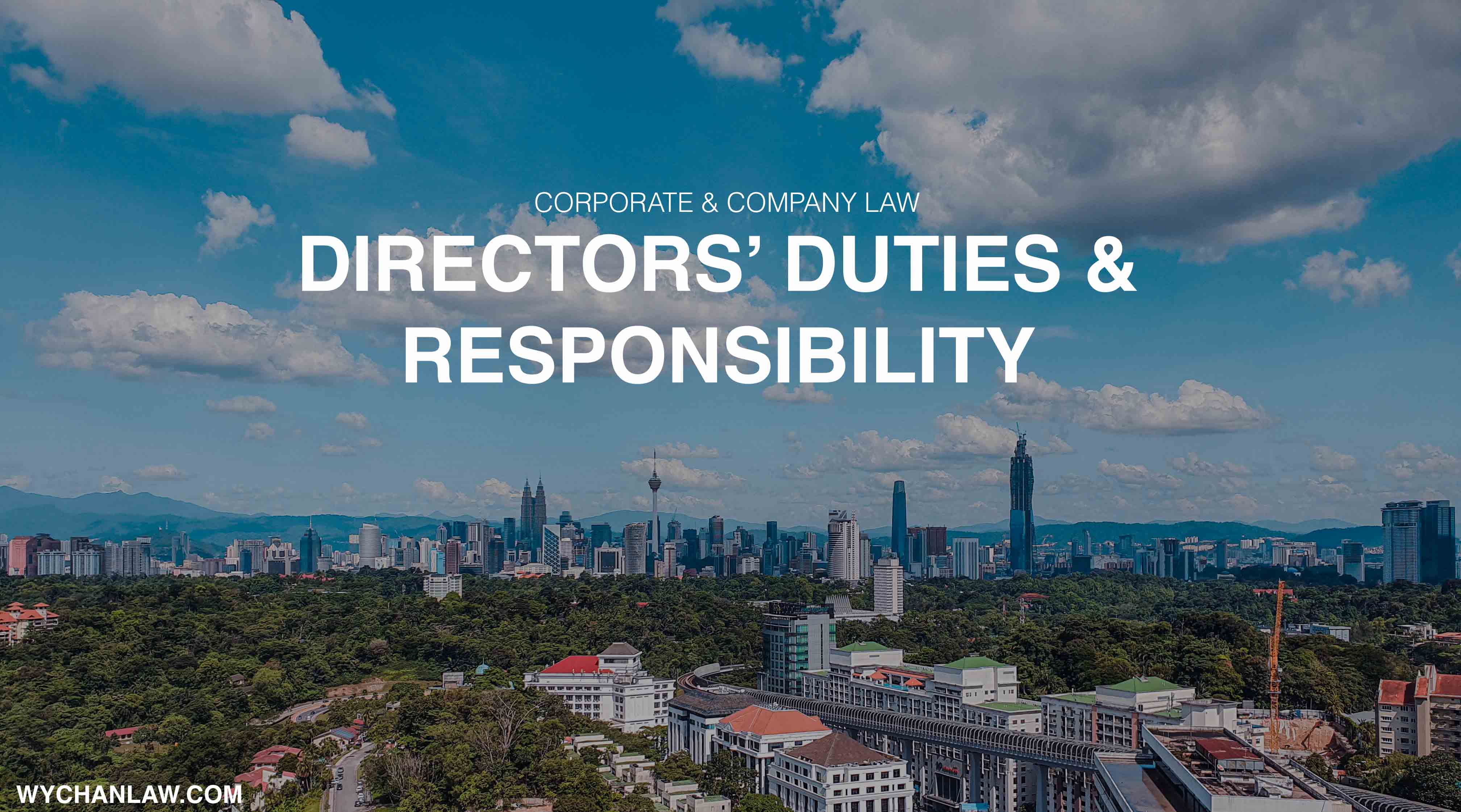Corporate & Company Law – Directors’ Duties & Responsibility
A company’s director has wide powers of management.However, the powers come with serious duties and responsibilities. A company’s director does owe the company a fiduciary duty. In this article, we will discussthe statutory requirements of the duties and responsibility of a company’s director.

Under Section 213 of the Companies Act 2016, a director of a company shall at all times exercise his powers for a proper purpose and in good faith in the best interest of the company. Further, a director of a company has also to exercise reasonable care, skill and diligence with the knowledge, skill and experience which may be reasonably expected of a director having the same responsibilities, and with the additional knowledge, skill and experience which the director in fact has.
What is meant by “the best interest of the company”?
In Re Smith & Fawcett Limited, Lord Greene MR stated that the directors must exercise their discretion bona fide in what they consider (not what a court may consider) is in the interest of the company, and not for any collateral purpose.
The Federal Court in Tengku Dato’ Ibrahim Petra Tengku Indra Petra v Petra Perdana Bhd & Another Appeal held that the test for breach of duty as a director to act in good faith and in the best interest of the company shall combine both subjective and objectivetest.
The Federal Court referred to an English case Charterbridge Corporation Ltd v Lloyds Bank Ltdwhich held that the test for breach of duty of a director and acting in “the interest of the company” has an objective element: whether an honest and intelligent man in the position of a director of the company concerned could, in the whole of the existing circumstances, have reasonably believed that the transaction was for the benefit of the company.
Business Judgment Rule
Under Section 214 of the Companies Act 2016, a director who makes a business judgment is deemed to meet their duty of care, skill and diligence if the director: –
For the purpose of this section, “business judgment” means any decisions on whether or not to take action in respect of a matter relevant to the business of the company.
In Tengku Dato’ Ibrahim Petra Tengku Indra Petra v Petra Perdana Bhd & Another Appeal, the Federal Court referred to the case of Howard Smith v AmpolPetroleum Ltd which held that in the absence of fraud, breach of fiduciary duty and conspiracy, the Courts do not undertake the exercise of assessing the merits of a commercial or business judgment made by directors.
In conclusion, a company’s director is not free to makeany irrational and unreasonable decision, albeit they are given wide powers of management. The law sets a barrier to protect the company’s stakeholders’ interest. Nevertheless, as the Court opines that it is an undeniable commercial reality that risk-taking is an unavoidable element to earn a profit for all businessesthe Courts have traditionally demonstrated a reluctance to substitute its own decisions with the business and management decisions of the directors.





0 Comments